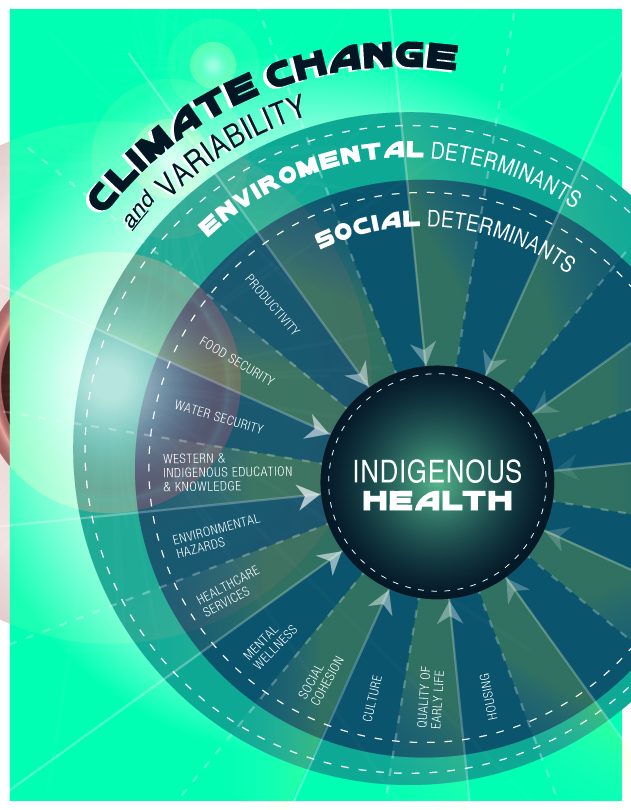 Our newly published article examines determinants of food security in Iqaluit. The article, entitled "Seasonal prevalence and determinants of food insecurity in Iqaluit, Nunavut", is published in the International Journal of Circumpolar Health.
Congratulations to the first-author, Yang Guo! Yang worked with Drs. Berrang Ford, Ford, and Harper on her fourth year honours thesis project in 2013-2014. Since then, Yang has been a medical student at McGill University. Click here for a free open-access to the article.
Our newly published article examines determinants of food security in Iqaluit. The article, entitled "Seasonal prevalence and determinants of food insecurity in Iqaluit, Nunavut", is published in the International Journal of Circumpolar Health.
Congratulations to the first-author, Yang Guo! Yang worked with Drs. Berrang Ford, Ford, and Harper on her fourth year honours thesis project in 2013-2014. Since then, Yang has been a medical student at McGill University. Click here for a free open-access to the article.
New Publication: Inuit Elders’ Perceptions of How Climate Change is Impacting Health
 New Publication!
New Publication!
Our newly published article examines how Elders in Rigolet, Nunatsiavut observe, experience, and respond to climate change impacts on health.
The article is published in the International Journal of Indigenous Health in a Special Issue on Inuit Health and Well-Being.
Congratulations to the first-author, Josh Ostapchuk! Josh did his fourth year thesis project with Drs. Cunsolo Willox, Edge, and Harper at the University of Guelph. He recently completed his MPH at Columbia University (NYC) in in May 2015, and accepted a full-time position with Deloitte in New York City as a Healthcare Strategy & Operations Consultant.
Citation:
Joshua Ostapchuk, Sherilee Harper, Ashlee Cunsolo Willox, Victoria L. Edge, Rigolet Inuit Community Government. 2012 (published online in 2015). Exploring Elders’ and Seniors’ Perceptions of How Climate Change is Impacting Health and Well-being in Rigolet, Nunatsiavut. International Journal of Indigenous Health. 9(2): 6-24. Click here for open-access article.
Abstract:
Climate changes are rapidly intensifying and can lead to adverse global health impacts. Indigenous populations are especially vulnerable to climate change because of their dependence on the environment for cultural activities and subsistence. The voices of Inuit Elders and seniors encompass deep wisdom and history; as such, the goal of this research was to examine the perceived impacts of climate and environmental changes on physical, mental, and emotional health, as observed by Elders and seniors in the Inuit community of Rigolet, Nunatsiavut, Labrador, Canada. A mixed-methods approach was used to gather data capturing these local observations, as well as perceived impacts on community health. A community survey was administered in November 2009 (n = 75) and in-depth interviews were conducted with Elders and seniors from January to October 2010 (n = 22). Survey results indicated that Elders and seniors observing changes in weather patterns, water systems, and wildlife were more likely to perceive climate change impacts on health (p < 0.05). Emergent themes from the interviews included: recurring observations of climate change, including changes in temperature, ice, snow, and seasonal timing; impacts on physical health, including reduced physical activity levels and poorer nutrition; impacts on mental and emotional health, including feelings of isolation and depression; and an identified need for community-wide adaptation. This research emphasized the importance of understanding Elder-specific perspectives of climate-health relationships in the Canadian North to develop sustainable, culturally relevant adaptation strategies to mitigate health impacts related to climate change.
New Article Published: Climate-sensitive health priorities in Nunatsiavut, Canada
 New Publication!
New Publication!
Our new published article presents the results of an exploratory study that used participatory methods to identify, characterize, and rank climate-sensitive health priorities in Nunatsiavut, Labrador, Canada.
Citation:
Harper, S.L. Edge, V.L., Ford, J., Cunsolo Willox, A., Wood, M., IHACC Research Team, Rigolet Inuit Community Government, and McEwen, S.A. (2015). Climate-sensitive health priorities in Nunatsiavut, Canada. BMC Public Health, 15:605. Click here to read the article (open access).
Abstract:
Background: This exploratory study used participatory methods to identify, characterize, and rank climate-sensitive health priorities in Nunatsiavut, Labrador, Canada.
Methods: A mixed method study design was used and involved collecting both qualitative and quantitative data at regional, community, and individual levels. In-depth interviews with regional health representatives were conducted throughout Nunatsiavut (n = 11). In addition, three PhotoVoice workshops were held with Rigolet community members (n = 11), where participants took photos of areas, items, or concepts that expressed how climate change is impacting their health. The workshop groups shared their photographs, discussed the stories and messages behind them, and then grouped photos into re-occurring themes. Two community surveys were administered in Rigolet to capture data on observed climatic and environmental changes in the area, and perceived impacts on health, wellbeing, and lifestyles (n = 187).
Results: Climate-sensitive health pathways were described in terms of inter-relationships between environmental and social determinants of Inuit health. The climate-sensitive health priorities for the region included food security, water security, mental health and wellbeing, new hazards and safety concerns, and health services and delivery.
Conclusions: The results highlight several climate-sensitive health priorities that are specific to the Nunatsiavut region, and suggest approaching health research and adaptation planning from an EcoHealth perspective.
